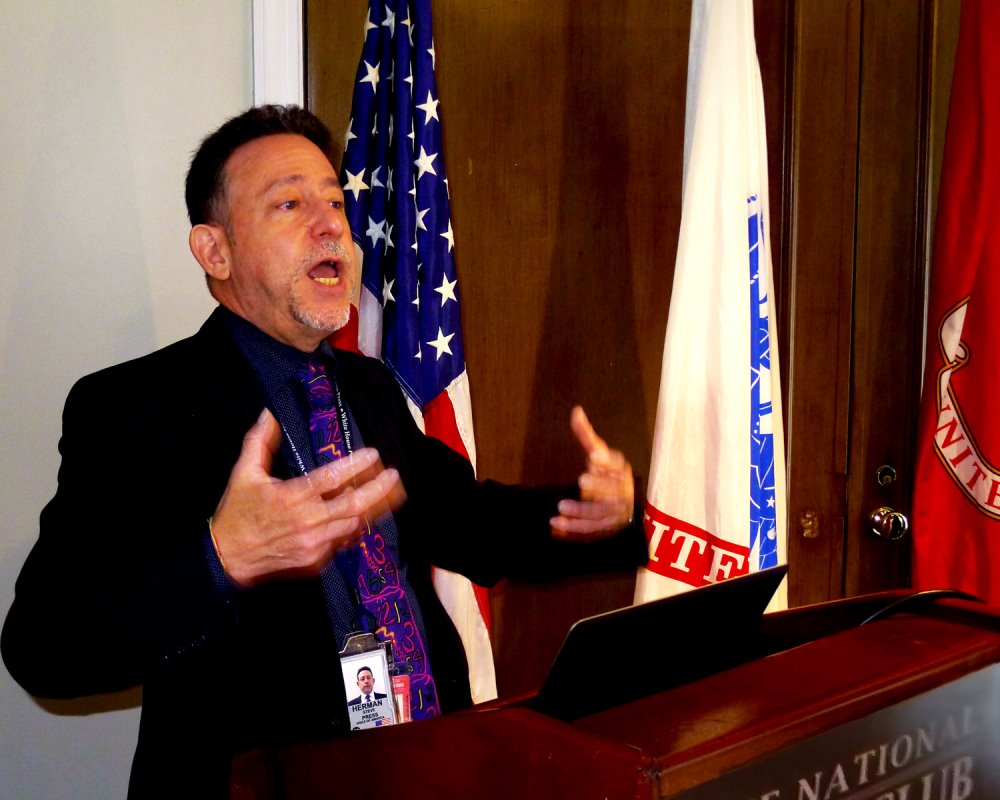VOA efforts outlined at American Legion Post 20 meeting
Limits on free speech around the world have kept the Voice of America (VOA) relevant for 80 years from its founding during World War II, Steve Herman, VOA chief national correspondent, told a Nov. 10 meeting of National Press Club's American Legion Post 20.

VOA operates 14 television and 40 radio studios from Washington, D.C. The U.S. Agency for Global Media, of which VOA is a part, oversees five broadcast entities.
While radio is big in Africa, the internet is more successful in reaching users in tightly regulated countries such as Russia, China and Iran.
Herman, who spent more than 25 years as a senior correspondent in Asia, gave an overview of the U.S. government's multi-media effort to advance U.S. goals and counter increasingly sophisticated efforts by Russia, China and other governments to influence public opinion.
"We're the only broadcast system mandated by law to be fair," Herman said noting that about 81% of its users overall trust its content with levels ranging from 98% in Ethiopia to 49% in Russia. A bright spot is Africa, where VOA has greater exposure and acceptance than the BBC.
Herman lamented the slowness by which U.S. officials often react to breaking news compared to their rivals. He cited as an example a meeting between former Secretary of State John Kerry and Russian Minister of Foreign Affairs Sergey Lavrov during which Lavrov quickly responded to questions while Kerry had to wait for clearances from his staff, the State Department and the White House.
VOA's first programing was in German and Japanese to counter Axis propaganda in World War II, but it no longer broadcasts in those languages. Changing times have also resulted in VOA setting up its own fact-checking web site to counter "disinformation." Its polygraph.info site is accessible to U.S. users.
The speaker portions of Post 20 meetings are open to all NPC members in person or via Zoom. The Post, one of the nation's oldest, was established at the urging to Gen. John J. Pershing, an associate member of the Club, in the aftermath of World War I.
